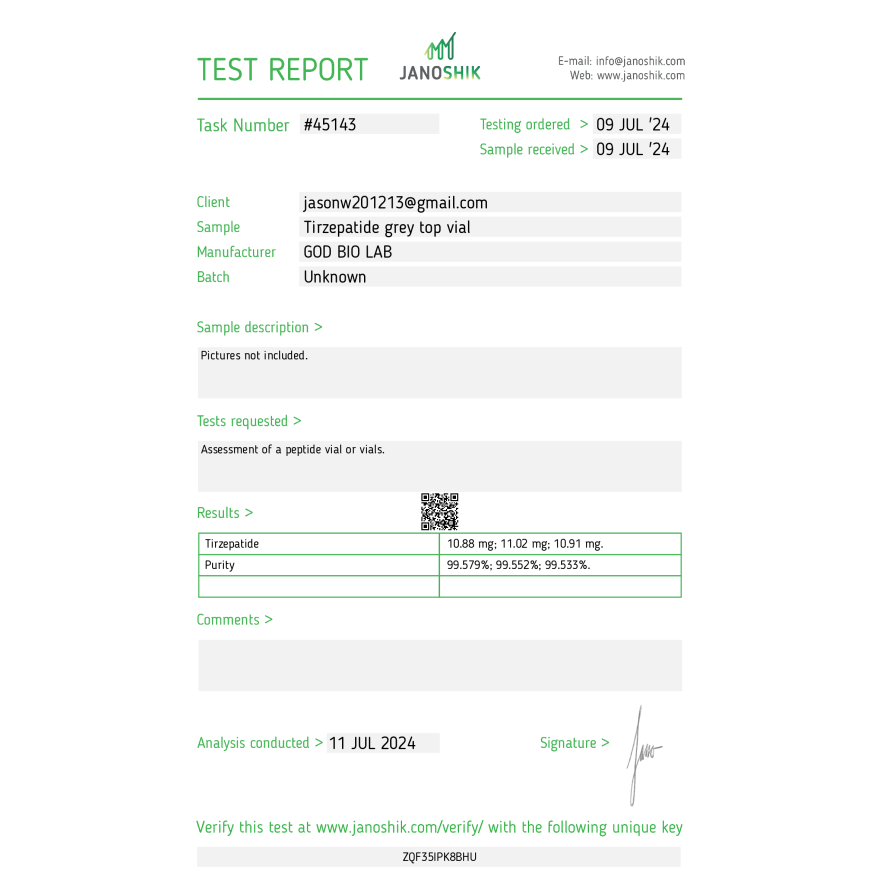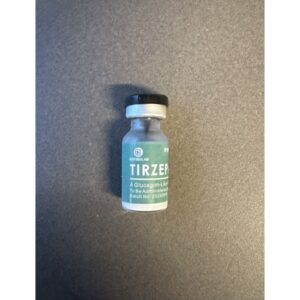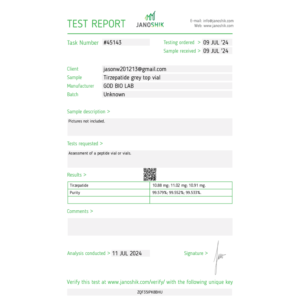GOD BIOLAB–Tirzepatide 10mg 1vial (1*10mg)
$68.00
2 or more $65.00
3 or more $60.00
5 or more $54.00
10 or more $48.00
Tirzepatide(Mounjaro,Zepbound) is a synthetic peptide with glucose-lowering effects. It works to stimulate first- and second-phase insulin secretion, and reduces glucagon levels, both in a glucose-dependent manner.
Tirzepatide was also shown to delay gastric emptying, lower fasting and postprandial glucose concentration, decrease food intake and reduce body weight in patients with type 2 diabetes. Tirzepatide can increase insulin sensitivity.
As the peptide is conjugated to a C20 fatty diacid moiety through a hydrophilic linker at the lysine residue at position 20, the drug is highly bound to albumin in the plasma, which prolongs its half-life.
Glucagon-like peptide-1 (GLP-1) receptors (GLP-1R) are expressed throughout the body, including pancreatic beta-cells and the gastrointestinal tract. They have been implicated in the pathophysiology of type II diabetes mellitus as GLP-1R signalling is involved in glucose control by enhancing glucose-stimulated insulin secretion, delaying gastric transit, decreasing plasma glucagon levels, and reducing body weight by activating anorexigenic pathways in the brain. Both glucose-dependent insulinotropic polypeptide (GIP) and GLP-1 are peptide hormones involved in glucose homeostasis: they promote glucose-stimulated insulin secretion from the pancreatic beta-cells. However, GIP is the main incretin hormone that exerts insulinotropic effects in response to food intake.
The exact mechanism of action of tirzepatide has not been fully elucidated; however, dual agonism at GIP and GLP-1R may contribute to the glycemic and weight control effects of the drug. Studies demonstrated that co-administration of GIP and a GLP-1R agonist more significantly increased insulin response and suppressed glucagon secretion compared to separate administration of either hormone alone. Tirzepatide binds to GIP and GLP-1R with high affinity. In vitro, tirzepatide has a comparable GIP receptor binding affinity to native GIP and five times lower GLP-1R affinity than that of native GLP-1. Tirzepatide potently activates the GLP-1R signalling pathway to stimulate glucose-dependent insulin secretion through activity at the GIP receptor (GIPR) or the GLP-1R. However, the role of GIPR agonism in the drug’s mechanism of action requires further investigation, as the evidence of GIPR agonism on glycemic and weight control in preclinical and clinical studies are conflicting.





Reviews
There are no reviews yet.